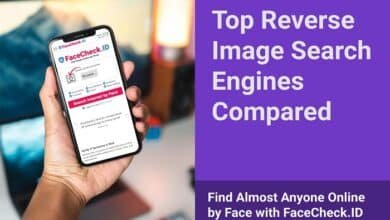Facecheck ID: Is It Legal? A Comprehensive Guide

In recent years, advancements in technology have brought new tools to our fingertips, one of which is Facecheck ID. But the question remains: Is Facecheck ID legal? This tool, primarily associated with identity verification using facial recognition technology, has garnered significant attention from businesses, governments, and privacy advocates. In this article, we will explore whether Facecheck ID is legal, the contexts in which it is used, and the factors that determine its legality.
What Is Facecheck ID?
Before delving into the legalities, it’s essential to understand what Facecheck ID is. This innovative technology employs artificial intelligence (AI) to verify an individual’s identity through facial recognition. Whether for online security, access control, or fraud prevention, Facecheck ID has found its way into various industries. However, is Facecheck ID legal in all these applications? The answer depends on the jurisdiction, the use case, and compliance with privacy laws.
How Facecheck ID Is Used in Different Sectors
Facecheck ID serves diverse purposes across sectors, making it a versatile yet controversial tool. Below are some of the key areas where Facecheck ID is utilized:
- Banking and Financial Services: For verifying customers during online transactions.
- E-commerce: To prevent fraud and ensure secure account access.
- Law Enforcement: For identifying suspects and missing persons.
- Healthcare: For patient verification and secure access to medical records.
While its uses are undeniably beneficial, is Facecheck ID legal in all these cases? Governments and organizations must adhere to local data protection regulations to ensure compliance.
The Legal Landscape Around Facecheck ID
The legality of Facecheck ID varies globally, and understanding regional laws is crucial. Here’s a breakdown of how different jurisdictions approach this technology:
- United States: In the U.S., privacy laws like the Biometric Information Privacy Act (BIPA) in Illinois regulate the use of facial recognition technology. The law requires explicit consent for using biometric data, raising the question: Is Facecheck ID legal without user permission? In states like California, the California Consumer Privacy Act (CCPA) also impacts its legality.
- European Union: The EU’s General Data Protection Regulation (GDPR) imposes strict requirements on the use of personal data, including biometrics. Under GDPR, Facecheck ID is legal only with informed consent and specific safeguards.
- Asia: Countries like China and India have varying levels of regulation. While China extensively uses facial recognition, other nations are adopting stricter rules to protect privacy.
- Other Regions: In Australia and Canada, privacy laws also play a significant role in determining whether Facecheck ID is legal.
Privacy Concerns Surrounding Facecheck ID
While Facecheck ID offers convenience, it raises significant privacy concerns. Advocates question whether its use infringes on individuals’ rights. Here are some issues to consider:
- Data Storage: How and where is biometric data stored? Is Facecheck ID legal if the data is stored insecurely?
- Consent: Many laws require explicit consent from individuals. Using Facecheck ID without consent is often illegal.
- Potential Misuse: There is a risk of this technology being exploited for surveillance or unauthorized tracking.
Understanding these challenges helps answer the critical question: Is Facecheck ID legal when used responsibly?
Benefits and Risks of Using Facecheck ID
To understand the full scope of whether Facecheck ID is legal, it’s important to weigh its benefits against its risks:
Benefits:
- Enhanced security in digital transactions.
- Faster and more reliable identity verification.
- Reduced cases of identity theft and fraud.
Risks:
- Privacy violations and data breaches.
- Potential bias in AI algorithms leading to inaccuracies.
- Legal repercussions for non-compliance with data protection laws.
While the advantages are clear, the risks cannot be ignored, making it imperative to ask: Is Facecheck ID legal in scenarios that compromise user rights?
Regulations That Govern Facecheck ID
To ensure compliance, organizations must adhere to regulations specific to their region. Below are some key laws that impact the legality of Facecheck ID:
- Biometric Data Protection Laws: These laws, like BIPA in the U.S., mandate transparency and consent.
- General Data Protection Regulation (GDPR): EU laws that strictly control biometric data use.
- AI-Specific Laws: Emerging frameworks aim to govern how AI technologies, including Facecheck ID, operate.
- Sector-Specific Guidelines: Industries like healthcare and banking often have their own regulations regarding biometric data.
By understanding these regulations, we can better answer the question: Is Facecheck ID legal when used in compliance?
How to Ensure Facecheck ID Is Used Legally
To use Facecheck ID in a lawful manner, individuals and organizations should follow these best practices:
- Obtain Explicit Consent: Always inform users about the use of facial recognition and seek their approval.
- Implement Robust Security Measures: Protect stored data against breaches.
- Stay Updated on Laws: Regularly review local and international laws to ensure compliance.
- Conduct Regular Audits: Assess the technology’s compliance with regulations.
By adopting these measures, you can help ensure that Facecheck ID is legal in your operations.
Conclusion
The legality of Facecheck ID depends on various factors, including the jurisdiction, use case, and adherence to data protection laws. While the technology offers numerous advantages, it also comes with significant risks, especially if used improperly. To answer the question, is Facecheck ID legal?, the key lies in informed usage, explicit consent, and compliance with applicable laws. Organizations must stay vigilant to protect both their users and themselves.
FAQs
1. Is Facecheck ID legal everywhere?
No, the legality of Facecheck ID varies by region. It depends on local laws and regulations governing biometric data.
2. Can Facecheck ID be used without consent?
In most regions, using Facecheck ID without explicit consent is illegal, as it violates privacy laws.
3. What are the penalties for misusing Facecheck ID?
Penalties include fines, lawsuits, and reputational damage, depending on the severity of the violation.
4. How does GDPR affect Facecheck ID?
Under GDPR, Facecheck ID is legal only if organizations obtain informed consent and implement safeguards for data protection.
5. What industries use Facecheck ID the most?
Facecheck ID is widely used in banking, e-commerce, healthcare, and law enforcement for secure identity verification.





